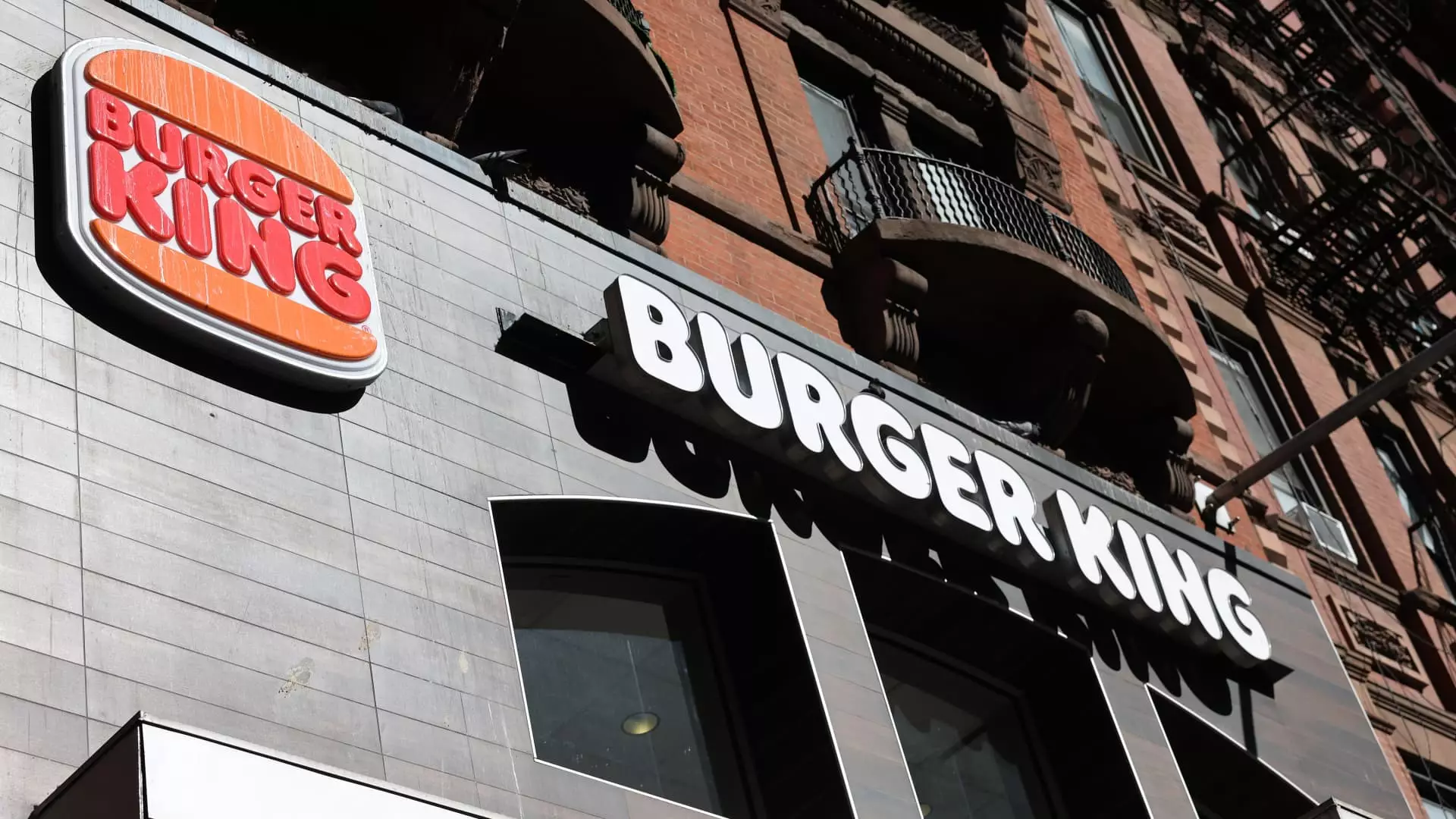Restaurant Brands International (RBI) recently reported a disheartening financial performance that casts a shadow over the fast food industry. Despite a 21% revenue surge to $2.11 billion, the company’s adjusted earnings fell short of analysts’ expectations, with earnings per share landing at 75 cents compared to the anticipated 78 cents. This discrepancy highlights a troubling trend that the company cannot ignore—its largest chains, Popeyes, Burger King, and Tim Hortons, all saw a decline in same-store sales. For a company so heavily reliant on these brands, this significant downturn raises serious concerns about its future trajectory.
A Deeper Look into Brand Performance
Diving into the specifics, RBI’s three flagship brands reported disconcerting same-store sales figures. Tim Hortons, which contributes over 40% to the company’s total quarterly revenue, recorded a mere 0.1% decline—far from the expected growth of 1.4%. Meanwhile, Burger King’s same-store sales worsened with a 1.3% drop, especially sobering for a chain that’s been attempting to recover its footing for over two years. Even Popeyes, known for its rabid fan base, experienced a staggering 4% decline—marking the largest drop in the quarter. This points toward more profound consumer trends that may not just be momentary bumps but could signify long-lasting shifts in eating habits and spending.
The Broader Economic Picture
What’s causing this turmoil? The landscape of consumer behavior has been shifting, driven by economic uncertainty and changing lifestyles. Rising inflation has made many customers reconsider their fast-food indulgences. With wage growth struggling to keep pace with living costs, consumers are turning to more cost-effective food options or opting for healthier alternatives. These evolving preferences are particularly disruptive for fast food chains that thrive on impulse buying. RBI’s struggling brands seem ill-prepared for this seismic shift—a reality that is likely to extend beyond this quarter.
Navigating the Future
Looking ahead, RBI faces the daunting task of innovating within an industry marred by low consumer confidence. Its recent acquisition of Burger King China hints at an aggressive expansion strategy, yet the domestic market—a crucial battleground—demands immediate attention. If the company continues to prioritize short-term revenue boosts over sustainable brand health, it runs the risk of alienating loyal customers during a crucial recovery phase. As competition intensifies, businesses that fail to adapt are likely to remain stagnant, leaving RBI at a crossroads where the choices it makes today could define its future trajectory.
In this tumultuous climate, Restaurant Brands International must not only recover its lost sales but also rethink its approach to consumer engagement—and fast. The next few quarters will be pivotal, and the clock is ticking for the company to realign its strategies to meet evolving consumer expectations.

